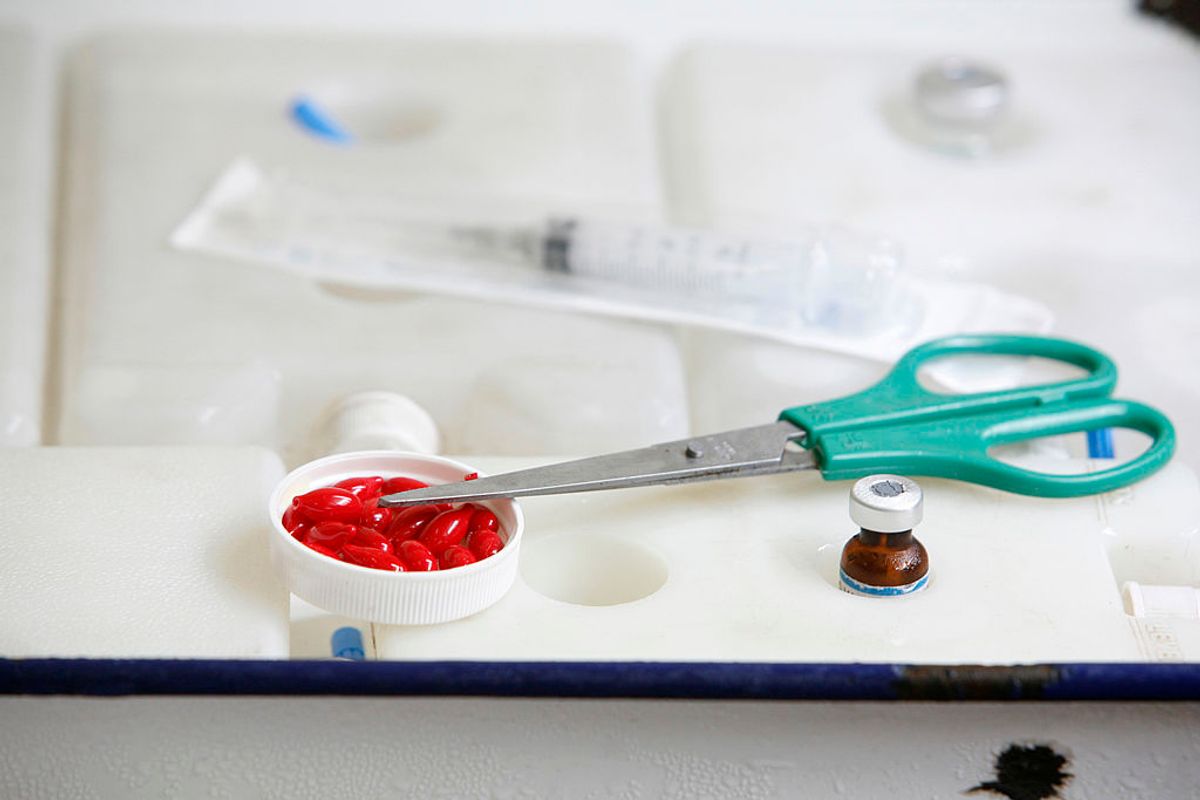For over 60 years, the American Academy of Pediatrics has recommended vitamin K injections for newborn babies. Vitamin K, which helps blood clot, exists at low levels in newborn children and puts them at risk of sometimes fatal bleeding — a condition known as Vitamin K Deficiency Bleeding (VKDB). As explained by the Centers for Disease Control and Prevention (CDC), "The vitamin K given at birth provides protection against bleeding that could occur because of low levels of this essential vitamin."
In June 2023, several claims about the purported evils of such supplementation — described by some observers as an increasing trend in the health misinformation space — garnered new attention.
I believe the US would be better off if everyone refused every vaccine and the K shot.
If you disagree and are willing to go 1:1 with me in a live video debate hosted by a well known doctor (he has Millions of followers), indicate your interest below.
Otherwise I will declare…
— Steve Kirsch (@stkirsch) June 11, 2023
One of the more perplexing assertions to come to light in this round of viral misinformation was the claim that "Vitamin K does not exist." While past claims leveled against vitamin K injections have focused on incorrect information about their safety, ingredients, or potential side effects, several online commentators this time around asserted or suggested that vitamin K was simply not real, or, at the very least, not a vitamin:
Did you know that before our newborn babies leave hospital, mine included, they always insisted on a mandatory Vitamin K shot? Vitamin K does not exist. It is time that The Parents of this World stood up. They've been attacking our offspring for years. They are ruthless Killers.
— The White Rabbit Podcast (@AllBiteNoBark88) June 18, 2023
The basis for this assertion appears at least in some cases to stem from the conflation of vitamin K — whose name stems from the German word for coagulation "koagulation" — and the element potassium, which has an atomic symbol of "K."
What's even worse is @JustinRosatiMD probably believes its actualy Vitamin K, which was considered Potassium when I was a pharm tech. Seriously, if a doc wrote Vit K on a script, we filled with Potassium. They were large round blue tablets. This was over 25 years ago.
— Welcome to the Tribulation (@CynickalGirl) June 11, 2023
Vitamin K is not potassium. Vitamin K, first described in 1927, is a fat-soluble vitamin encompassing several chemically similar molecules. One common source stems from leafy greens and vegetables, and another stems from some animal and fermented foods.
Another interpretation of "Vitamin K does not exist" is the conclusion that the chemicals, while real, do not merit vitamin status. Vitamins, in general terms, are chemicals "that the body needs in small amounts to function and stay healthy." Such a framing of vitamin K as an invention of medical science plays into conspiratorial notions of Big Pharma creating medical conditions or supplements for profit:
VITAMIN K SHOT:
From our official science source, CDC:
"ALL newborns have low levels of vitamin K, so they need vitamin K from another source" [highlighted on their website]
ALL OF YOU ARE BORN DEFECTIVE. SCIENTISTS HAVE PROVEN THIS, JUST TRUST THEM.— Sanjay "John" (@sanjay_world) June 12, 2023
This is a hard argument to square, given the long period of time in which medical science has been aware of both vitamin K and its relationship to blood clotting. As an observational study of infants in the British Isles published in the journal BMJ in 1991 demonstrated, "Infants who do not receive a vitamin K shot at birth are 81 times more likely to develop late VKDB than infants who do receive a vitamin K shot at birth."
Because vitamin K exists, we therefore rate this claim as "false."

